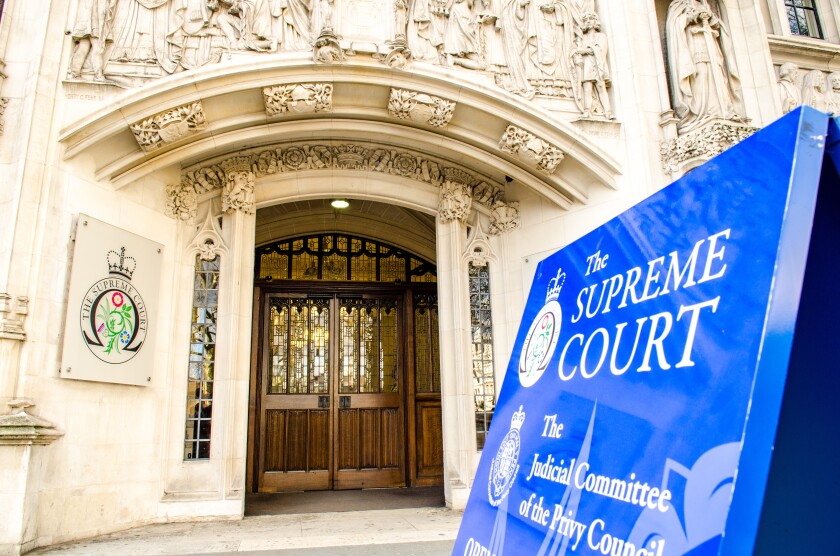UK patent law already allows for artificial intelligence tools to be named as inventors, counsel for computer scientist Stephen Thaler told the Supreme Court today, March 2.
A panel of five judges heard arguments in the final stage of a legal battle over whether two patent filings naming the AI tool DABUS as the inventor should be granted.
The appeal was brought by Thaler, the creator of DABUS, an AI system that he claims autonomously invented a food storage system.
The UKIPO rejected the patent filings on the grounds that UK patent law requires a human, or “natural person”, to be named as the inventor.
But counsel for Thaler told the Supreme Court that the law simply required the applicant to identify whom they believed the real inventor to be.
Ryan Abbott, a professor at the University of Surrey who has been representing Thaler throughout the case, and Robert Jehan, partner at Williams Powell, acted as counsel for Thaler.
In this case, the counsel said, Thaler’s statement that there was no human inventor met the UK Patents Act’s requirements.
Lord Justice David Kitchin, a former IP barrister, repeatedly quizzed the pair over why Thaler didn’t name himself as the inventor when this would probably have meant the patent could have been granted.
“You have taken what could be seen as a rather intransigent position in how you’ve framed your application and run into a brick wall,” the judge suggested.
But it would be dishonest for Thaler to name himself as the inventor when he was not the actual deviser of the technology, as required by UK law, Abbott replied.
“What might be intransigent to some might, to others, simply be Thaler stating his scientific belief [that there is no inventor],” he said.
Stuart Baran, barrister at Three New Square and standing counsel for the UKIPO, said too many of Thaler’s arguments dealt with what he thought the law should be rather than what the statute required.
“Parliament centred its provisions on [natural] persons with consideration and care,” he said.
Toby Bond, partner at Bird & Bird in London, was one of several lawyers who attended as observers.
Speaking to Managing IP outside court, he said the arguments touched on fundamental points about the purpose of the patents system.
“From their questions, the justices clearly understand the significance of the decision they have to take,” he said.
The trial concluded today and a decision is now pending.











